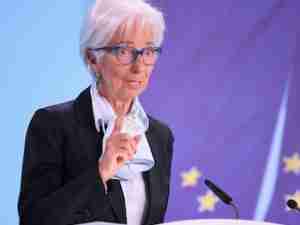Zimbabwe Strike Winds Down as Mugabe’s Ruling Party Blames West
By: Godfrey Marawanyika and Chengetai Zvauya | Jul 07 2016 at 07:27 AM | International Trade
A strike in Zimbabwe started winding down Thursday with opposition groups promising future protests over the southern African nation’s economic collapse that has led to a shortage of cash, import controls and the failure of the government to pay salaries on time.
Traffic was normal on roads leading into the capital, Harare, on Thursday, a day after a strike brought much of Zimbabwe to a standstill. More than 100 protesters were scheduled to appear in a court on charges of involvement in public violence, police spokeswoman Charity Charamba told reporters.
The Civil Service Apex Council, which represents state workers, told its members to return to their jobs on Friday and urged President Robert Mugabe’s government to pay state workers soon and not to persecute those who participated in the stayaway, the group’s chairwoman, Cecilia Alexander, said by phone Thursday. The ruling party accused western embassies of sponsoring the strike.
A group known as Tajamuka, which played a key role in organizing the demonstrations, said it was ending its role in the protests while demanding that Mugabe, 92, announce by Aug. 31 when he will step down. It said the police must release those detained.
‘Too Old’
“He no longer has the capacity to govern the country as he is too old,” Tajamuka spokesman Promise Mkwananzi told reporters in Harare.
The leader of an anti-government group known as #ThisFlag, Baptist pastor Evan Mawarire, threatened late Wednesday in a video on Facebook to call a strike on July 13 and 14 if the government fails to remove roadblocks that drivers say the police use to demand bribes; pay civil servants on time; take action against corrupt ministers; remove import controls; and rescind plans to introduce so-called bond notes in October to ease the cash crisis.
Wednesday’s labor action was called following a Finance Ministry announcement that it was delaying pay for state workers, including the military, and riots on Monday sparked by protests by taxi drivers over alleged police harassment. Violent clashes also erupted last weekend at Zimbabwe’s main border post with South Africa, forcing its closure, when the government banned the import of certain goods.
Mugabe’s administration has faced a worsening cash shortage in recent months. Since abandoning its own currency in 2009 to end hyperinflation, Zimbabwe has used mainly U.S. dollars, as well as South African rand, euros, and British pounds. The government spends about 83 percent of its revenue on wages, according to Finance Minister Patrick Chinamasa.
